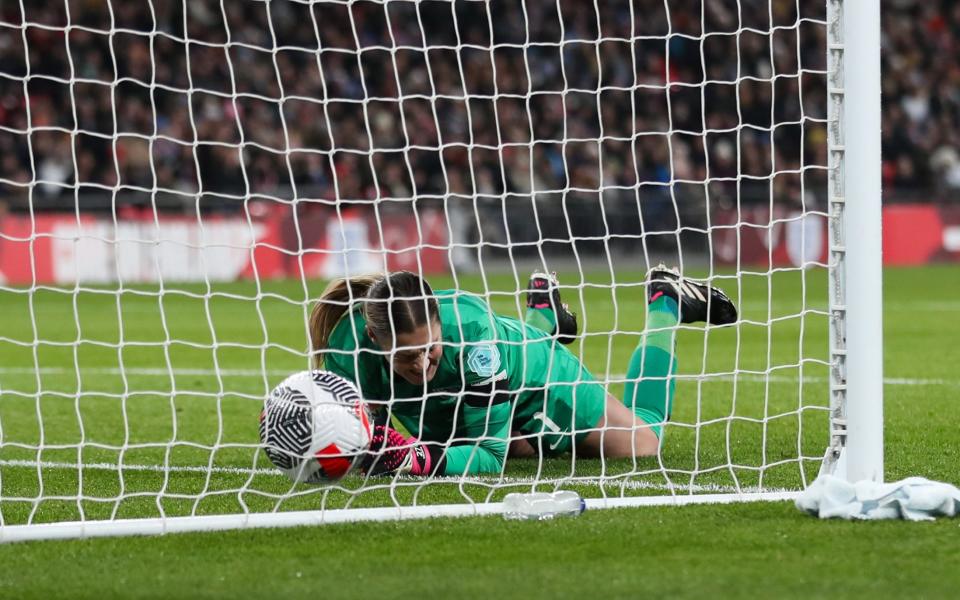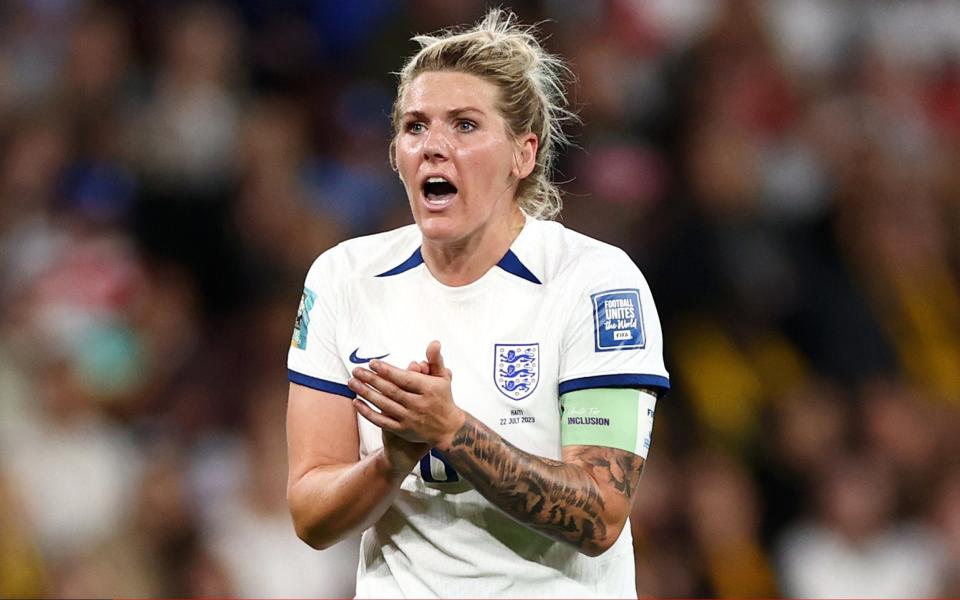Where Lionesses’ Olympic qualification campaign went wrong – and one silver lining

There will be no Team GB side involved in the Olympics women’s football competition in Paris next summer, which means the women’s game will miss out on a key opportunity for exposure, and it’s because England – who were designated as being responsible for qualifying on behalf of Great Britain – failed to win their Nations League group. It leaves fans asking: where did it go wrong?
It should not be forgotten that it is inordinately difficult to qualify for the Olympics as a European women’s team, with only 12 teams taking part next summer compared to 16 men’s teams, and therefore only two European sides will join hosts France. Sweden, who finished third in the World Cup behind England and Spain, also will not be involved. Only Germany, the Netherlands and world champions Spain remain in contention for the two spots, after the Dutch scored twice in stoppage time to pip England to the top of Nations League Group A1 on goal difference on Tuesday night.
It was a cruel way to miss out by the finest of margins, but England will still look back and reflect that this was a missed opportunity, and lessons should be learnt from their campaign. This was a campaign that did not come undone merely on a night of high drama in Glasgow – on the contrary, England were superb at Hampden Park – but the damage was done much earlier in a tricky autumn spell.
Individual defensive lapses
Firstly, England must look within, and recognise that their defending – particularly in their away 3-2 defeat in Belgium – was not up to the levels their fans have come to expect.

Even in their opening victory over Scotland, and Friday’s comeback win at Wembley over the Dutch – where Jess Carter and Mary Earps were at fault for soft goals being conceded – but most notably in Leuven in October, it was all too easy for opponents to get in behind England’s back line, which became a consistent theme of the first five matches of the campaign.
A large part of that can be put down to the absences of first-choice defenders through injury, but nonetheless the squad must tighten up at the back and get back to their rock-solid best in 2024.
Missing big chances
At the other end of the pitch, with the exception of Tuesday’s rout in Glasgow, England’s finishing has also been somewhat troubling, and in a group where just one single goal scored would have made all the difference, every spurned opportunity in front of goal now carries extra significance, as harsh as that may sound.
Arsenal striker Alessia Russo – a star of England’s World Cup run, scoring in their quarter-final and semi-final – netted just once in this campaign, while Aston Villa’s number nine Rachel Daly did not register a Nations League goal. Both will be disappointed with those returns, by their high standards.
As a team, the Lionesses missed a hatful of chances in the first half of their 1-0 home victory over Belgium in Leicester in October and that wastefulness has come back to haunt them now. Even on Tuesday night, despite her good all-round display, Lauren Hemp’s inexplicable miss from a few yards, when she hit the post in the first half, also proved costly.
Lack of video assistant referees
By the same token, on the principle that every single goal has counted so significantly in this Nations League group, England can feel aggrieved to have been on the wrong end of some questionable refereeing decisions in multiple fixtures in their campaign, any one of which swinging the goal difference overall.
In England’s opener, Lauren James incorrectly had a late goal ruled out for offside, replays showed, while England felt Daly’s early header, which was also ruled out for offside, should have stood too. For balance, in the same game, it is fair to say the Lionesses were also very fortunate not to concede a penalty for a blatant foul on Martha Thomas by Millie Bright. Var is not in operation in these women’s internationals.
The controversy was most heightened in Utrecht, where England suffered a pivotal 2-1 defeat against the Netherlands, and the replays suggested the Dutch’s first goal should not have stood, because Danielle van de Donk was offside in the build-up. At Wembley on Friday, there was a question of offside around the Dutch’s second goal too, whilst their opening goal – albeit defined by slack England defending – technically came from a Dutch move that started from a goal kick, when a corner should have been awarded.
In isolation, each of those incidents are simply part of sport. Officials make mistakes, they are human beings. But it will not ease England or Team GB fans’ frustration.
Injuries to key players
Speaking of frustration, England were also hampered by injuries to key players, not least the long-term absence of influential captain Leah Williamson, and her fellow centre-back Bright’s own knee injury seeing her miss December’s games. Their absences were sorely felt in the first half at Wembley, in particular. And much of the defensive lapses seen in the loss in Belgium in October came only after centre-back Alex Greenwood had been withdrawn because of concussion.

Further still, the classy performance of Beth Mead at Hampden Park showed how badly England have missed the Arsenal forward in her 12 months out. Any team in the world would miss a player of the calibre of Mead.
Nonetheless, England should still have had enough strength in depth to get the job done.
But there is a silver lining…
Fatigue also played a part, especially in September’s camp, where England were back together under a month after the World Cup final, and with some players only having had six days off after. Having moved pretty quickly from last season’s club campaign into their training camp before the World Cup, this is a squad that did not get an off-season break this year.
Many of the players lamented that tight schedule when speaking during September’s camp, and they appeared mentally and physically drained. Sarina Wiegman herself expressed worry about the calendar and said “players are not robots”.
For that reason, perhaps there is a silver lining to not qualifying for Paris. It won’t feel like it now, to England’s devastated players, but it could be a blessing in disguise for them to take a breather next summer, and boost their chances of success at Euro 2025, where they will seek to defend their European title.
Asked if there might be any benefits to not qualifying for the Olympics, Wiegman disagreed, saying: “Well, you want to go to every major tournament. The career of a football player is [only] a certain amount of time, so if you can play every major tournament, of course every player wants that. In the bigger picture, we have to look at the calendar, and the players are not robots. And they need some rest too. That’s very obvious. But instead of a tournament? That goes a little bit too far, for me.”
Understandable though that thought process from Wiegman may be, if England had qualified, some of their players would have been facing five consecutive summers of major tournaments: Tokyo’s delayed Olympics in 2021, Euro 2022, this summer’s World Cup, Paris in 2024 and then 2025’s Euros in Switzerland, sounding alarm bells about injury risks.
No England players or staff will have wanted it this way, and they all must strive for better results and tighter defending in their Euros qualifiers, but perhaps a break is what they all need the most.

 Yahoo Sport
Yahoo Sport 






































